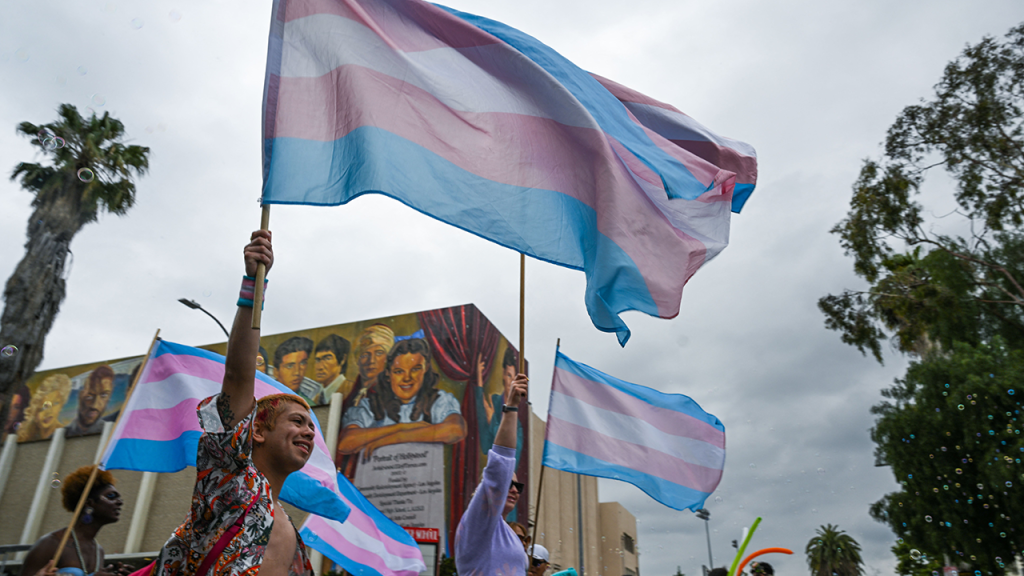The practice of housing transgender women, specifically biological males who identify as female, in women’s prisons has sparked significant controversy and concern, particularly regarding the safety and well-being of female inmates. A new report by Independent Women raises alarm bells about the potential risks posed by this policy, highlighting the disproportionate likelihood of transgender women inmates having committed sexual offenses compared to the general female prison population. The report argues that placing biological males, especially those with intact male genitalia or a history of violent sex crimes, in close proximity with female inmates creates a heightened risk of harassment, assault, and a serious deprivation of female inmates’ rights. Critics contend that these risks are being deliberately ignored in favor of policies that prioritize gender identity over the safety and security of female inmates.
The report cites several alarming statistics and anecdotal evidence to support its claims. Data from the Federal Bureau of Prisons (BOP) reveals that nearly half of transgender male prisoners have sex convictions, compared to less than 12% of the general male prison population. Moreover, accounts from female inmates detail experiences of sexual assault and harassment by transgender women inmates. These accounts paint a disturbing picture of vulnerability and fear within women’s prisons, where female inmates feel their concerns are being dismissed or minimized. The report also points to the potential for manipulation of the system, suggesting that some biological males may identify as female to gain access to women’s prisons, where they may perceive themselves as having more power or control.
The legal and policy landscape surrounding this issue is complex and varies across states. While some states, like California, Connecticut, Maine, and New Jersey, allow biological male inmates who identify as female to be housed in women’s prisons, others, like Utah and Louisiana, prohibit it. The remaining states operate on a case-by-case basis. This patchwork of policies contributes to the ongoing debate and the lack of a uniform approach to addressing the inherent challenges of housing transgender inmates. The report emphasizes the need for clear legal guidelines and policies that prioritize the safety and well-being of all inmates, regardless of gender identity.
Advocates for housing transgender women in women’s prisons argue that it allows them to live in a safer environment, claiming that transgender women face significantly higher rates of sexual assault in male prisons. Organizations like the Transgender Law Center highlight the abusive conditions transgender inmates often face in male facilities, including denial of medical care, solitary confinement, and harassment. They contend that placing transgender women in women’s prisons is a necessary measure to protect them from harm. However, this argument overlooks the potential risks posed to female inmates, creating a difficult balancing act between protecting vulnerable populations while ensuring the safety and security of all inmates.
The report’s findings have ignited a fierce debate, with proponents of transgender rights accusing critics of transphobia and fear-mongering. They argue that focusing on the potential risks posed by transgender women inmates perpetuates harmful stereotypes and ignores the systemic issues of violence and abuse that plague the prison system as a whole. Conversely, critics maintain that the concerns raised are legitimate and must be addressed to ensure the safety and well-being of female inmates. They argue that failing to acknowledge the potential risks associated with housing transgender women in women’s prisons amounts to a denial of women’s rights and a disregard for their safety.
The Independent Women report calls for several solutions to address the concerns raised, including amending the Prison Rape Elimination Act to prevent gender identity-based transfers to women’s prisons, clarifying that the Americans with Disabilities Act does not mandate mixed-sex housing, and protecting female inmates’ rights to report abuse without retaliation. The report also recommends eliminating reliance on activist medical guidelines and tying federal prison funding to policies that prioritize the safety of female inmates. These recommendations aim to establish a more balanced approach that considers the safety and well-being of all inmates while navigating the complex issues surrounding gender identity and incarceration. The ongoing debate highlights the urgent need for a comprehensive and nuanced approach to prison policy that respects the rights and safety of all individuals within the correctional system.

